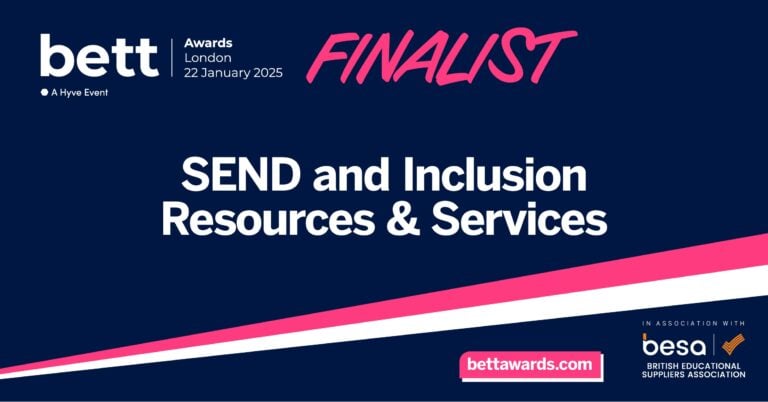
Have You Got A Broad And Balanced Curriculum In Place?
Curriculum is big news at the moment. Everyone seems to be scurrying here, there and everywhere to get their curriculum in order and fit for Ofsted ‘deep dives’.
Breathing apparatus has been distributed, documents are being rewritten and websites updated to include the Holy Trinity of ‘intent’, ‘implementation’ and ‘impact’ because ‘curriculum’ is on the Ofsted radar and schools want to be ready with the crumpets, trumpets and red carpet.
Curriculum is King and Queen and it’s getting the right royal treatment.
When it comes to managing the curriculum then the bottom-line is pretty universal and schools will say that they want to ensure that children receive a broad and balanced curriculum which is matched to the ability of each child.
But managing the curriculum is no easy task and actually the stuff of nightmares and sleepless nights because it needs to be carefully thought through with plenty of strategic decision making.
Curriculum is the lifeblood of a school and it touches all aspects of school life so the focus has to be right especially as it is at the heart of Ofsted’s new 2019 Education Inspection Framework (EIF).
Canny Curriculums
Intelligently managed, the curriculum determines a school’s effectiveness and impacts on the well-being of the whole school community. It is a blend of relationships between educational objectives, learning outcomes, content, resources assessment types, teaching approaches and the learning environment. It determines the quality of education pupils receive.
Ofsted are keen on “quality of education” and under the EIF, the school curriculum is now judged under three headings: curriculum intent, curriculum implementation, and curriculum impact.
Curriculum intent relates to curriculum design and how ambitious, coherently planned and sequenced, and how broad and balanced the curriculum is for all pupils. This is about the ‘substance’ and what knowledge and understanding schools expect their pupils to gain at each stage of their schooling and in each subject. It is what schools intend pupils to learn.
Curriculum implementation relates to curriculum delivery and how teaching and assessment feed into learning. This is about how the whole-school curriculum hangs together and how its institutional context informs the curriculum and it is not left to chance.
Curriculum impact relates to pupil achievement as assessed by external test and/or exam results. Their achievement is also judged using progression and destinations data and also relates to how successfully pupils are developed as well-rounded citizens. This is about the knowledge and skills pupils gain at each stage and how this compares to expectations.
There are no tricks, trapdoors or sleights of hand under the new EIF. Ofsted are looking to see whether curriculum leaders have a clear curriculum vision of the ‘end points’ they want pupils to get to and how this works in the sequences of lessons being taught.
They are interested in seeing whether schools have built a curriculum with appropriate coverage, content, structure and sequencing, and have implemented it effectively.
For some, the school curriculum should be BRAVE: buzzing, relevant, academic, vocational and evaluator (Hywel Roberts (2012). For others, it should be a personalised, anti-gimmick and pro-wisdom cohesive curriculum (Robinson, 2019). But whether you plait the curriculum, make it irresistible or go global, it has to be “owned, shaped and celebrated” by the school because “your curriculum is your school” (Sherrington, 2019).
Comprehensive Cover
Ofsted aren’t impressed when they see things being done purely to please them. What counts is when schools do what is right for their children in their school.
Ofsted have no preferred curriculum approach and acknowledge the place of both topic and subject-led curricular. A knowledge-rich curriculum isn’t on their favourites list. They advocate schools adopting a published curriculum or constructing their own. It might mean joining curriculums together. The key is that the curriculum offer needs to be adapted to the school’s context and local setting.
To support schools with their curriculum intent, implementation and impact, sophisticated software is available that can help with curriculum, assessment planning, sequencing and mapping to make sure that all bases are covered. With everything in one place, you can be sure that your information is always consistent and up to date.
Within Educater Assessment schools have access to ‘Curriculum Manager’ which supports school leaders to manage their own, whole curriculum. This provides a range of curriculum content generated by leading education suppliers so that schools can craft, create and edit in order to build a holistic vision of their curriculum and implement this throughout their school.
Different approaches to teaching, learning and assessment can be effective and plugging into multiple curriculum frameworks is beneficial. Educater Assessment helps schools mix content from different content providers such as Mathematics Mastery, Rising Stars, NAHT, Pearson, STAT Sheffield, Discovery RE and Access To Education. Schools can also include their own content which means they can shape their primary assessment strategy and pupil progress trackers to suit their school.
Curriculum is the real substance of education and assessment is an integral component. Good curriculum planning, implementation and getting the nitty-gritty right takes time and needs intelligent insights. Curriculum development is a dynamic process and some schools are further down the road than others. Ofsted acknowledges that schools may want to review their curriculum in light of the inspection changes and as a result, 2019-20 is being treated as a transition year. This is where Educater can help schools get things in place.
For those schools who are further down the line then Educater can support school leaders and teachers to measure the impact of their curriculum and ask whether it is actually delivering what it intends. Crucially, it ensures that assessment shapes future learning and is not excessive or onerous and all pupils can access the curriculum well.
Assessment of the curriculum is integral to the success of a progression model so that schools can identify gaps in knowledge or misconceptions in pupils’ learning. Educater can connect the dots and give those all-important data insights to fuel school improvement and curriculum health. It is built for collaboration, transparency and efficiency.
Author: John Dabell










